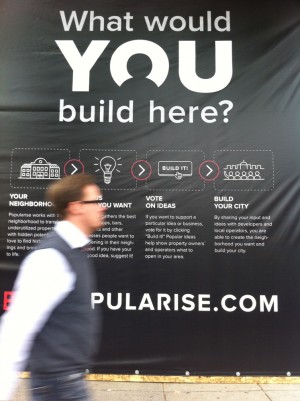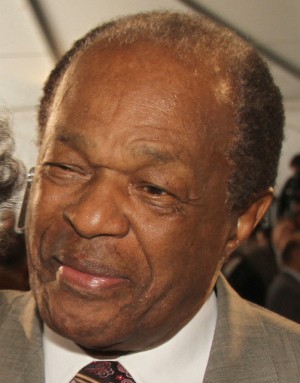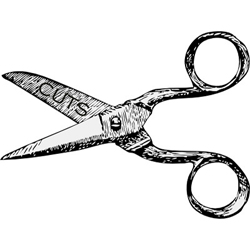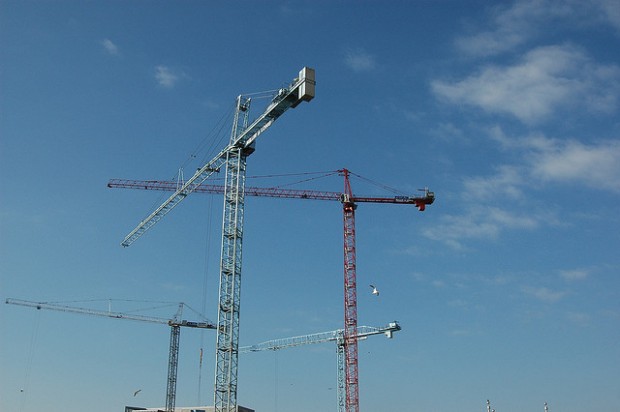
Elahe Izadi / DCentric
A sign on 14th Street and Rhode Island Avenue NW asks "What would you build here?"
Businesses play an important role in the transformation of neighborhoods. A certain restaurant or store can attract newcomers, make a block seem “desirable” or become a gathering spot.
But as it stands now, the public generally doesn’t have a say on what specific businesses open up in their neighborhoods, says developer Ben Miller. Should that vacant storefront be a coffee shop or a pet store?
That’s why Ben Miller and his brother, Dan, started Popularise.com in late 2011. They were trying to figure out what to do with the building they purchased at 1351 H Street NE, and wanted public input. So they posted the project online and asked people to vote on ideas they had already explored or submit suggestions. About 1,000 people responded, and Ben Miller says they’ll announce the final project within a few weeks.
The site is in its early stages and currently features five buildings. People sign up by providing their names and zip codes and can then comment on project ideas or suggest new ones for the featured buildings. Building owners, developers and others then use the feedback as a factor in the eventual outcome, along with economics, construction issues and other things.
“A lot of people aren’t in the process of how neighborhoods get built. They don’t know how decisions get made,” Miller says. “A lot of it can be changed by including lots of people who normally don’t get involved.”
But is targeting an online audience the best way to increase involvement? A persistent digital divide in the District means there’s a good chunk of the population who is not connected, and they’re mostly low-income folks.





